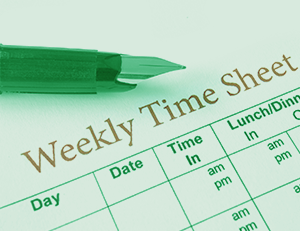Small Business Bookkeeping Deadly Sin #7: Not Recording Enough Details About Transactions
When many small business owners visit their accountant, they bring their bank statements, receipts or even their computer records… and a bad memory! This deadly sin trips even some of the most diligent small business owners up at times.
You must record enough information about a transaction so that anyone – you or anyone else – can easily understand the transaction that occurred.
In fact, under tax law you are obligated to keep records that specify and explain all transactions. This includes any documents that are relevant for the purpose of working out your tax liabilities.
In the old days, many people struggled with this as they forgot to write the payee’s name or the amount paid on their cheque stubs. You could find out the amount when your bank statement came in but you still had no idea who you had paid. The only way to find out was to go to the bank and pay them some money for the information.
Of course, it’s quite different these days when most of your transactions are done online.
Having said that, you can still be caught out without all the right information when it comes time to review your records with your accountant. I don’t know if you have come across this particular scenario, but I certainly have. And it always happens when it is most difficult to find the receipt.
Imagine your accountant is doing your end of year accounts and tax returns and asks you what an amount of £200 you spent in July of the previous year was for. You probably wonder why she needs to know and you don’t actually remember what the expense was for, so now you have to go off and try to track down the invoice.
You know that it was for £200 and you know you paid it to an office supplies company, but what on earth was it for? The accountant tells you she needs it to find out whether what you purchased was tax deductible or whether you need to depreciate it.
About an hour later you finally locate the invoice and find that it was for a replacement photocopier.
The truth is, if you had just recorded this information straight into your accounting program you would have avoided the problem altogether, saving the hour and the stress. The Cashflow Manager bookkeeping program has a ‘Details’ section, where you can record an explanation of the expense so you can refer to it later. Make sure you record this information while it is still fresh in your mind so you can save time and anxiety if your accountant does ask you about it.
Not recording information about transactions eats up your accountant’s time too which means it is costing you more.
And what about if a tax inspector comes calling? The last thing you want do is answer questions about your transactions and tax liabilities. The easier you can make the process the better.
Another issue I have encountered is insurance payments where the type of insurance has not been recorded. Simply writing down the name of the property, the person and the type of insurance cover can save you a lot of time here.
I’m sure that you can find other examples as well, but what I have learned is this: if the transaction wouldn’t be immediately obvious to someone who doesn’t know your business, record the extra details.
The result of taking this small step is hours saved with your accountant, a stress free end of financial year and no worries if you happen to be audited.











Leave a Reply